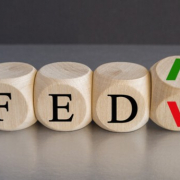Test Your Financial Knowledge With A Simple 3-Question Quiz That Stumped Most American College Graduates
 Pop quiz, hot shot: Can you answer these three questions that stump most Americans with college degrees?
Pop quiz, hot shot: Can you answer these three questions that stump most Americans with college degrees?
The quiz was developed by two business school professors, Olivia Mitchell of Wharton and Annamaria Lusardi of George Washington School.
They surveyed Americans to learn more about wealth inequality using this quiz, designed to test fundamental knowledge of money.
Here are the questions, as shared on Money.
1. Suppose you had $100 in a savings account and the interest rate was 2% per year. After five years, how much do you think you would have in the account if you left the money to grow? (A) More than $102. (B) Exactly $102. (C) Less than $102.
2. Imagine that the interest rate on your savings account was 1% per year and inflation was 2% per year. After one year, how much would you be able to buy with the money in this account? (A) More than today. (B) Exactly the same. (C) Less than today.
3. Is this statement is True or False: Buying a single company’s stock usually provides a safer return than a stock mutual fund?
Did you get them all right?
In case you’re not sure, the answers are, respectively, A, C, and False.
If you’ve been taught about personal finance, the answers probably came easy to you. But the majority of surveyed Americans (55.7%) with college degrees didn’t get them all right. Turns out that those most likely to do well on the quiz are people who are affluent.
Surprising Numbers
The questions originated about a decade ago, with Wharton business school professor and executive director of the Pension Research Council Olivia Mitchell, and George Washington School of Business professor and academic director of the Global Financial Literacy Excellence Center Annamaria Lusardi. In a quest to learn more about wealth inequality, they’ve been asking Americans and others these questions for years, while studying how the results correlate with factors such as retirement savings. The questions are designed to shed light on whether various populations “have the fundamental knowledge of finance needed to function as effective economic decision makers.”
They first surveyed Americans aged 50 and older and found that only half of them answered the first two questions correctly. Only a third got all three right. As they asked the same questions of the broader American population and people outside the U.S., too, the results were generally similar.
“We found widespread financial illiteracy even in relatively rich countries with well-developed financial markets such as Germany, the Netherlands, Switzerland, Sweden, Japan, Italy, France, Australia and New Zealand. Performance was markedly worse in Russia and Romania.”
If you think that better-educated folks would do well on the quiz, you’d be wrong. They do better, but even among Americans with college degrees, the majority (55.7%) didn’t get all three questions right (versus 81% for those with high school degrees). What Mitchell and Lusardi found was that those most likely to do well on the quiz were those who are affluent. They attribute a full third of America’s wealth inequality to “the financial-knowledge gap separating the well-to-do and the less so.”
This is consistent with other research, such as that of University of Massachusetts graduate student Joosuk Sebastian Chae, whose research has found that those with higher-than-average wealth accumulation exhibit advanced financial literacy levels.
The Importance Of Financial Literacy
This is all important stuff, because those who don’t understand basic financial concepts, such as how money grows, how inflation affects us, and how diversification can reduce risk, are likely to make suboptimal financial decisions throughout their lives, ending up with poorer results as they approach and enter retirement. Consider the inflation issue, for example: If you don’t appreciate how inflation shrinks the value of money over time, you might be thinking that your expected income stream in retirement, from Social Security and/or a pension, will be enough to live on. Factoring in inflation, though, you might understand that your expected $30,000 per year could have the purchasing power of only $14,000 in 25 years.
Mitchell and Lusardi note that financial knowledge is correlated with better results:
“Our analysis of financial knowledge and investor performance showed that more knowledgeable individuals invest in more sophisticated assets, suggesting that they can expect to earn higher returns on their retirement savings accounts.”
Thus, better financial literacy can help people avoid credit card debt, take advantage of refinancing opportunities, optimize Social Security benefits, avoid predatory lenders, avoid financial scams and those pushing poor investments, and plan and save for retirement.
Even if you got all three questions correct, you can probably improve your financial condition and ultimate performance by continuing to learn. Many of the most successful investors are known to be voracious readers, eager to keep learning even more.
View the video from Money Tips From The Pros: The Secret to Financial Success below.
Source: lifehacker

